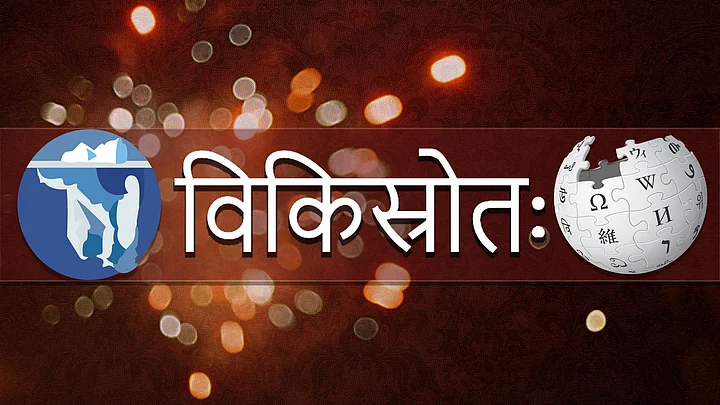This Diwali, if you want can’t find a specific chant while you perform pooja, there is a bright chance that you’ll get it on Sanskrit Wikisource. Don’t bother to look for that ancient book bought by your great grandfather. All you need to do is google any of the key words. It’s that simple now.
Ahead of the auspicious festival, Sanskrit Wikisource has crossed the milestone of 10,000 pages and joined the league of Portuguese, Italian, Arabic and Persian. A group of around 20 volunteers have worked tirelessly for five years to digitise and edit timeless classics like Ramayana, Mahabharata, Vedas, Upanishads, Darshanas, Puranas and Smritis.
This tedious work is done by 10 full-time volunteers from Sanskrit Bharati and 10-15 Sanskrit lovers, who take out time every weekend from their busy professional lives. None of them are appointed as editors or paid by Wikipedia. Shubha, the coordinator of Wiki wing of Sanskrit Bharati, has evolved as the undeclared head of the project.
Based out of Bangalore, she plans the strategy for Sanskrit Wikipedia as well as Wikisource. While Wikipedia is an online, dynamic encyclopedia for casual Sanskrit users, Wikisource has all copyright-free works uploaded essentially for scholars.
Sanskrit is a useful and scientific language. We want to bring all its books online. If it’s not digitised in Unicode, nobody will read it.Shubha, Coordinator, Wiki wing, Sanskrit Bharati, Bangalore
IT Professionals as Volunteers
Along with Shubha and her team members at Sansrkit Bharati, part-time volunteers like Mandar Kulkarni work for 4-5 hours every weekend. Mandar, a software engineer by profession, is a Wiki enthusiast, who contributes to Sanskrit Wikisource along with Wiki pages in English and Marathi.
The world will know about an Indian singer, when someone like me writes about his work. Someone in Canada cannot do that. We need to do this so that future generations get authenticated information at one click. This work gives me pleasure and satisfaction.Mandar Kulkarni, Wiki volunteer
Interestingly, the internal conversation of Wikisource Sanskrit is also in Sanskrit. Those who think it’s a dead language, should see these active discussions.
Apart from epics and classical novels, now they have also started digitising the great treasure of subhashitas (sharp, crisp, witty poems) on Wikiquotes.
Earlier, volunteers had to read and type each and every Sanskrit word. It would take a lot of time. Google OCR (Optical Character Recognition) came to their rescue a few weeks ago. Using this software, now text on scanned pages get converted into Unicoded text. This has made their job way faster. But due to complexity of Sanskrit words only around 80 per cent of words get converted accurately, the rest has to be done manually. Although OCR has helped them in this regard, they are facing many more problems.
10K Pages Ready, But Who Reads Them?
Although years have been spent on putting out thousands of error-free pages, regular page views are only in a few hundreds. The main reason is lack of awareness; several lakh people know basic Sanskrit, but many of them are unaware that all classical works are available at one stop. Second reason lies in searching problems; not everyone is able to type the search word in Devanagari script (e.g. ऋग्वेद) from their mobile phone.
Lack of funds is another problem. The concept of Wiki is based on volunteers, who come from native speakers. But Sanskrit is the mother tongue of only 14,000 people in India as per the 2011 census. So, unlike other languages with huge volunteer bases, Sanskrit will need funds to digitise its rich heritage. Government of Karnataka had given funds worth Rs 1 lakh, but that was a one-off case.
Anyone who has basic knowledge of Sanskrit can help. A lot of work is to be done. Although all major books have been uploaded, only 5 percent of total work is complete.Shubha, Coordinator, Wiki wing, Sanskrit Bharati, Bangalore
With the help of Prof KV Ramakrishnamacharyulu of Rastriya Sanskrit Vidyapeetha in Tirupati, now Shubha is planning to organise training camps for those who want to volunteer for Sanskrit Wikisource and Wikipedia.
(At The Quint, we question everything. Play an active role in shaping our journalism by becoming a member today.)
